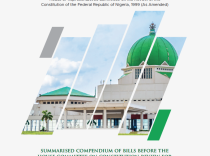The questionable state of emergency imposed on Rivers State has been further complicated by the conduct of local government elections, which observers and stakeholders have widely criticized. The focal point of the criticisms has been the question of why local government elections were conducted in a state that is supposedly so pervaded by insecurity as to warrant emergency rule in the first place.
On March 18, 2025, President Tinubu declared a state of emergency in Rivers State, citing a security crisis and a breakdown of governance stemming from the protracted conflict between Governor Siminalayi Fubara and the House of Assembly. The National Assembly quickly approved this declaration through a questionable voice vote, in clear violation of the constitutional requirement that a state of emergency must be endorsed by a two-thirds majority of both chambers. Following this, the President appointed a retired naval officer, Vice-Admiral Ibok-Ete Ibas (rtd), as Sole Administrator of the state.
Since his appointment, Vice-Admiral Ibas’ tenure has been marked by actions widely perceived as unconstitutional. These include dissolving the existing State Independent Electoral Commission and appointing new members, preparing and implementing a state budget, appointing sole administrators for local government areas, and installing chairmen and members of both the Rivers State Civil Service and Local Government Service Commissions.
The newly constituted Electoral Commission went ahead to conduct local government elections on 30 August 2025, which have now become another flashpoint of controversy. Results from some LGAs have been questioned for inflation compared to previous election figures.
In the 23 LGAs where the exercise was conducted, results from just 2 Local Government Areas (LGAs) produced voter turnout figures that far exceeded the total votes cast across all 23 LGAs of the state in both the 2023 gubernatorial and presidential elections. For example, in Obio/Akpor and Port Harcourt City LGAs alone, both of which were won by PDP candidates, the winners were credited with approximately 328,823 and 235,054 votes, respectively, a combined total of 563,877 votes, excluding those received by other contestants. By contrast, the total number of votes cast in the entire state during the 2023 gubernatorial election was 494,604, while the presidential election recorded 553,944 votes, both of which are substantially less than the figures from just these two LGAs.
Against this backdrop, this stark contrast, particularly in the LGAs won by the PDP has fueled doubts about the credibility of the elections and reinforced perceptions that the entire exercise has been an attempt at political capture of the state.
The elections were boycotted by several of the parties, including even the suspended governor. Results showed a split between the APC and PDP which are both alleged to remain under the control of former governor and current Minister of the Federal Capital Territory, Nyesom Wike.
The bigger contradiction, however, lies in the logic of the elections themselves. A state of emergency was declared on the premise of a breakdown of law and order. Six months on, elections have now been conducted under the same emergency. If law and order have been restored enough to permit elections, why has the state of emergency not been lifted and elected officials restored? If the breakdown of law and order truly persists, how can an election conducted under such conditions be considered credible? The conduct of this election only deepens the unconstitutional conundrum in Rivers State, where democratic structures remain suspended even as elections are staged.





